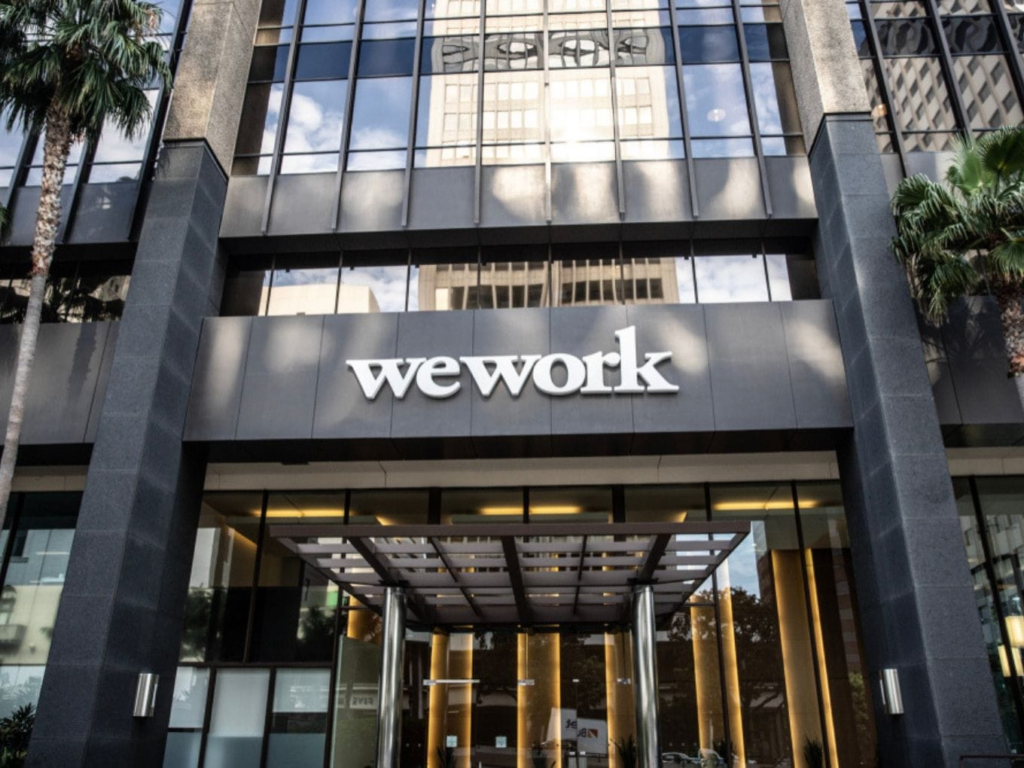WeWork, the beleaguered shared office giant grappling with dire financial troubles for years, made a significant announcement on Monday.
The company revealed that it had filed for bankruptcy as part of a strategy to negotiate down its debt, which had been weighing heavily on its operations.
US and Canada Operations Impacted, Global Operations Continue:

The bankruptcy filing primarily impacts WeWork’s operations in the United States and Canada. However, the company assured stakeholders that its global operations will continue without disruption.
WeWork’s CEO, David Tolley, emphasized the need to address legacy leases and improve the company’s financial standing, expressing the intent to remain a global leader in flexible work.
Financial Struggles and Warning Signs:
WeWork had been on the brink for a while, and in early August, it had issued a warning to the US stock market regulator, the SEC, about its survival prospects.
The company cited significant financial losses, liquidity needs, and a tenant decline as key factors contributing to its troubles.
WeWork reported losses amounting to billions of dollars in the first six months of 2023, largely attributed to a decrease in demand caused by poor economic conditions.
From Market Star to Downfall:
Once a celebrated star in the sharing economy, WeWork had established a significant presence in commercial real estate in major cities worldwide.
However, the company faced challenges from its former CEO, Adam Neumann, high operating costs, and a lack of profitability.
In 2019, WeWork’s attempt to go public with a staggering valuation of $49 billion met with disappointment.
Neumann was removed from his position that year, though he received a substantial severance package. The COVID-19 pandemic and the surge in telecommuting further exacerbated WeWork’s decline.
Drastic Decline in Market Value:
As of Monday evening, WeWork’s shares were valued at 80 cents on the New York Stock Exchange, resulting in a market capitalization of only $44.5 million.
This substantial drop in market value underscores the challenges faced by the company and its journey from market prominence to its current financial crisis.













